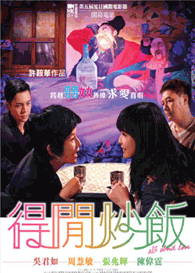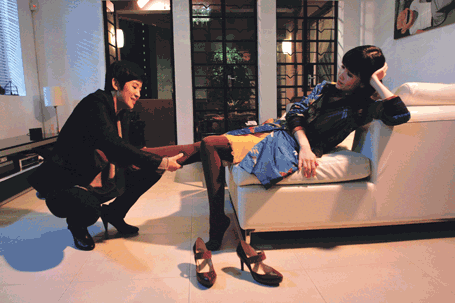
In its own way, the film tries to gain an understand for lesbian and bisexual women in Asia as well as preach at its audience about gender relations and the give and take of love. It tries to normalise the ‘unnatural’. In other words, its approach is not too different from the gay-themed movies that came out of Hollywood in the 1970s. It’s just as earnest, sweet, and preachy – just with lesbian and female leads this time round. Does it feel dated? Maybe social conditions in Asia are really 40 years behind the industrialised world.
Watching this film, I am reminded of when an international thespian happened to attend a play by a local out playwright. It was a classic piece of agitprop queer theatre – if you didn’t derive some form of self-validation from this gay-themed play, you probably wouldn’t appreciate it or like it much. And yet the thespian was reported to sigh and smile repeatedly, even wistfully at the same lines I thought were just too precious.
My friend, a mentor to many a theatre studies talent, told me kindly, “Sir X smiled, yes. But Sir X smiled not because the lines were original or the writing showed the promise of a staggering genius. Sir X smiled because 40, 50 years ago, way before he was out, he had watched incendiary plays like this in London, that had lines like this.”
Watching Ann Hui’s All About Love, I felt myself being transported to the position of Sir X as I sighed and smiled wistfully at the film.

